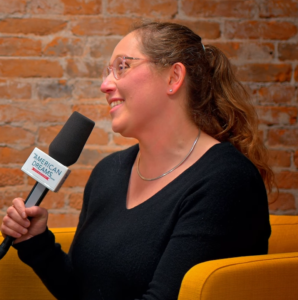Charitable Donations May Avoid Capital Gains Tax

Charitable Donations May Avoid Capital Gains Tax
Charitable donations may avoid capital gains tax if structured properly. Many family offices choose to be engaged in philanthropy at some level. Unfortunately, selling stocks and other securities in order to make a charitable donation often results in the need to pay capital gains tax. One way to further benefit the charity and avoid paying capital gains tax is to transfer ownership of an appreciated stock directly to a charitable organization[1].
For example, if you thinking of selling $100,000 worth of stock to make a charitable donation, you could either sell the stock and donate cash, or donate the stock directly to the organization.
Should you decide to sell $100,000 of stock and donate the cash proceeds, you must first determine how much capital gain you will accrue from the sale. If you originally bought your stock for $20,000 and your capital gain’s tax rate is 30%, you would have an $80,000 gain, of which, you would owe a 30% tax of $24,000. After paying your tax bill, you’d effectively have $76,000 left of your original $100,000 to donate to the charitable organization.
Or, you can consider the second option: donating stock directly to the charitable organization. If you donate your stock worth $100,000 directly to the charity, (assuming you’ve held the stock for more than one year), there would be no sale and therefore, no capital gain to be taxed. Donating stock instead of cash would result in the charity receiving an additional $24,000. Not only would the charity receive more, they’d also receive it in the form of stock, which can increase in value, pay dividends, etc.
While this seems like a great way to skirt the tax man, we recommend speaking to your tax advisor before making any kind of donation of stock or other liquid assets. There are certain exceptions to this rule which may limit your deduction such as the type of asset you are donating or whether the charity is qualified as determined by the IRS.[2]
Selecting the right type of asset to donate is also important. You should avoid donating stocks if their sale would result in a capital loss. Donating a stock that currently has a fair market value lower than its basis may cause you to miss out on offsetting other capital gains with a capital loss.
Section 1202 stock, also known as qualified small business stock, is another asset that you should avoid transferring to charitable organizations. Qualified small business stock (QSBS) is a special provision in the tax code that rewards investors for investing their money in early stage companies. If the stock is held for more than 5 years, 100% of the first $10 million of gain is taxed at an effective rate of 0%. That means it’s tax free! The tax-free gain is a strong reason to choose to donate another appreciated stock over QSBS.
If you have any questions on charitable donation tax strategies or if you’re in need of objective tax and family office advice (we never sell investments), please consider contacting us here at Info@GROCO.com. Or, visit our website at www.GROCO.com to learn more about us. Unfortunately, we no longer give advice to other tax professionals gratis.
We hope you found this article about charitable donations may avoid capital gains tax helpful. We encourage philanthropy and other worthwhile social endeavors whenever we can.
To receive our free newsletter, contact us here.
Subscribe to our YouTube Channel for more updates.
Very considerately yours,
The GROCO, GROCO Tax, GROCO Technology, GROCO Advisory Services, GROCO Consulting Services, GROCO Relationship Services, GROCO Consulting/Advisory Services, GROCO Family Office Wealth, and GROCO Family Office Services teams.
[1] https://www.irs.gov/publications/p526
[2] https://www.irs.gov/publications/p526
Spencer Jones | Lineus Medical
Spencer worked for 3 years in direct patient care as a Certified Nursing Assistant, Licensed Practical Nurse, and as a Registered Nurse. Frustrated with the inefficiencies plaguing the healthcare system, he was determined to play a role in improving the delivery of healthcare. In 2014, Spencer won the annual ARK Challenge, an Arkansas based business accelerator. The product he developed was a dual lumen peripheral IV called the BVAD, which focuses on painless and uncontaminated blood draws.
Adeel Malik | CEO of Clearstep
While studying finance and neurobiology in undergrad, Adeel spent his time doing neuro-immunology research at the Johns Hopkins Hospital, contributing to several academic publications. After undergrad, Adeel was a strategy & analytics consultant with Accenture for several years where he worked with some of the largest institutions in healthcare across pharma, health tech, health systems, and retail clinics. Adeel’s skills in healthcare analytics, operations, sales, and his breadth of experience
Yael Katz | How BrainCheck is Democratizing Cognitive Health
Dr. Yael Katz is the co founder and CEO of Braincheck, a healthcare technology company focused on making cognitive health assessments more accessible. Prior to co founding Braincheck, Yael was VP of ecommerce at JW Player and a post doctoral research fellows at Princeton University. She received a Ph.D in in Biological Sciences focusing on Computational and Experimental Neuroscience from Northwestern University.Alan What brought you to co founding Braincheck? Yael If a person has a concern that




